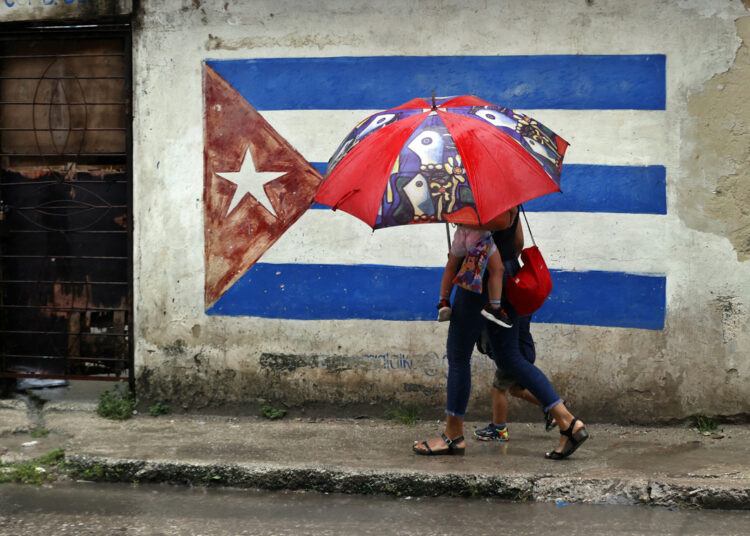According to the renowned economist, Paul Krugman (The New York Times, Sept. 17, 2024), most Western economists agree that, in a market economy, tariffs – import taxes – raise prices for consumers. Economic theory says so and so does the empirical evidence. As in all taxes, the businessman who pays it– be it manufacturer or importer – passes it on to the consumer in the form of a higher price. Only the Donald Trump loyalists, says Krugman, believe that the Chinese exporters, for example, of electric cars, and not the US consumer, will assume the tariffs imposed by the former President if he is reelected. It does not have a shred of validity but it is what a good part of the Republican Party in the US believes.
He compares them to Tromif Lysenko, a Soviet agronomist that refuted Mendel’s theory that the traits an organism passes down to future generations derive from its genes, not the organism’s experiences. Lysenko argued that Mendel contradicted the Marxist theory of dialectical materialism, and even though most serious Soviet biologists considered Lysenko a maverick, Stalin liked the idea and imposed it, which led to multiple agricultural failures for decades– and biologists deported to Siberia.
I don’t know if there are Lysenkos in Cuba. Still, the fact is that the near totality of the economists in the country are asking for a structural transformation of the national economy, with more participation of the market in the allocation of resources and determination of prices; with more enterprises of all types, private, public and cooperative; with more – not less – activities allowed for non-state workers, such as professionals; meanwhile, the government takes piecemeal and contradictory measures with adverse effects, such as topping prices on consumer products or imposing monopolies and monopsonies.
In the words of Antonio Romero, full professor at the University of Havana and former Dean of the Faculty of Economics, interviewed by Osvaldo Pupo on OnCuba News: “In Cuba, dogmas replace economic rationality”. After another year of falling GDP in 2023 and perspectives for little or no economic growth this year, the government announced last December a new program of macroeconomic stabilization. This is at least the fourth Government program since 2019 that seeks a solution to the economic crisis and a boost to production.
And if the tariffs that Trump is promising are allegedly to punish the Chinese, some of the new measures announced by the Cuban Government for economic and agricultural stabilization appear aimed at punishing the private and cooperative sectors, even though the official discourse denies it.
“The ideological DNA of a major part of the Cuban establishment still considers the non-State sector as anti-systemic. The problems of the Cuban economy will not be solved until we expunge that idea once and for all”, says Romero.
This is why the “new” program insists in targeting tax evasion, instead of lowering the already high tax rates – for both private and State enterprises – and granting exemptions for productive activities such as food production. On the contrary, in 2023 the government canceled the tax credit on profits of private businesses in their first year of operation, and in August of this year, eliminated the three-month tax break for first-time self-employed workers. “When there’s talk about the need for fiscal equilibrium, the emphasis is on increasing tax revenue. Achieving a deficit reduction primarily through increase in revenues is practically impossible”, according to Romero.

Taxes on imports and profits typically result in price increases for the consumer and, thus, more inflation. Romero states in the aforementioned interview: “It’s inconceivable that the stated priority is to reduce and try to control inflation and, instead of going to the root causes, they end up doing what is supposedly easier, which is capping prices, capping profit margins. That is not going to solve anything. The SMSEs (small and medium-sized enterprises) began as a necessary evil. Then they picked up speed and now [the government] wants to suppress them. They will end up becoming complementary [to State enterprises] and finally essential for Cuba to advance”.
State protectionism in Cuba with relation to the private sector is similar to the protectionism that some countries practice concerning international trade, which seeks to protect domestic production and employment by imposing restrictions, limitations, or tariffs to foreign goods or services (imports), making them more expensive and thus less competitive with domestic ones. There are conditions where this policy is warranted, such as to protect an emerging industry from foreign competition until it can stabilize and become viable. But as a general rule, this harms the consumer, who has to pay higher prices, and sometimes the very industry it is trying to protect, if it isolates it from the competition that compels it to be more productive.
In the Cuban case, instead of protecting and promoting domestic production of goods and services, State protectionism aims to keep in “check” the growth of the emerging private and cooperative sectors so that it does not dwarf the State sector, and thus achieve greater economic and, eventually, political strength. That is why the SMSEs (or, more precisely, Limited Liability Companies, SRL in Spanish) are not allowed to import directly – they must use a State importer which increases the final cost and often contributes little to the commercial process. That is why they try to limit the number and scope of private wholesale trade and retail stores, that compete with the former monopoly of the State stores (known as TRD), now with a much more limited offer and sometimes with higher prices. That is why the SRLs are not allowed to compete with State monopolies, as is the case with SMSEs that bid the municipal government for solid waste pickup and recycling in their neighborhood and are told that it is the responsibility of the Communal Services Department — knowing full well that they lack trucks and diesel fuel – while the garbage piles up on the street corners.
That is why Decree 107/2024 “On activities not authorized for micro, small and medium-sized enterprises, non-agricultural cooperatives and self-employed workers” (GOC-2024-446-O78), recently approved, instead of reducing the prohibitions, as was expected, keeps those that most limit the country’s economic development and even adds some new ones. Maybe the most unsustainable one is Section L: Professional, scientific, and technical activities, that prohibits all but bookkeeping (even though many also perform accounting and business management services “on the side”); design, decoration and photography (but not architecture and engineering); computer equipment programming (far short of the software developers that abound throughout the country, serving directly domestic and foreign customers); veterinarians for pets (but not for cattle or farm animals, which would help the agriculture sector).
It prohibits activities of travel agencies and tour operators (Art. 86). It prohibits making reservations and relates services, for travel, transportation, hotels, restaurants, car rental, entertainment and sports activities, theater ticket sales, sports competitions, and other amusement and entertainment activities (Art. 87). It prohibits reservations and activities that further sport fishing and hunting, including diving, and mountain guides (Art. 119). It prohibits activities of professional business associations (Art. 121) and other business service activities (Art. 92). It prohibits activities of physical or digital libraries, archives, or information centers (Art. 113). It prohibits journalism activities (Art. 109).
And there are new ones: “Vegetable charcoal for export can only be sold by producers” (Art. 45), which blocks an SMSE like Deshidratados Habana, that has already developed an export market for dehydrated foods and condiments, from including charcoal purchased from other producers in its catalog. The requirement that wholesalers go through the State depends on a Resolution that the Ministry of Domestic Trade (MINCIN) has yet to issue.
“For me — says a successful woman entrepreneur — the worst thing is that it slows down [the economy] and will be perceived as a reversal, which Cuba cannot afford. Many Cubans have even returned to the country to live and invest, and this new package is a disincentive for them”.
“For a long time —reflects Antonio Romero— many of us economists have been saying that Cuba has accumulated serious macroeconomic disequilibria and, thus, needs to design and implement a coherent, systemic, integral program of macroeconomic stabilization, that gradually eliminates those great problems. If it is not done that way, achieving economic growth and development will be very difficult”.
But the Cuban Lysenkos predominate in the political realm, and the social scientists go unheard, while the economic failures accumulate.










